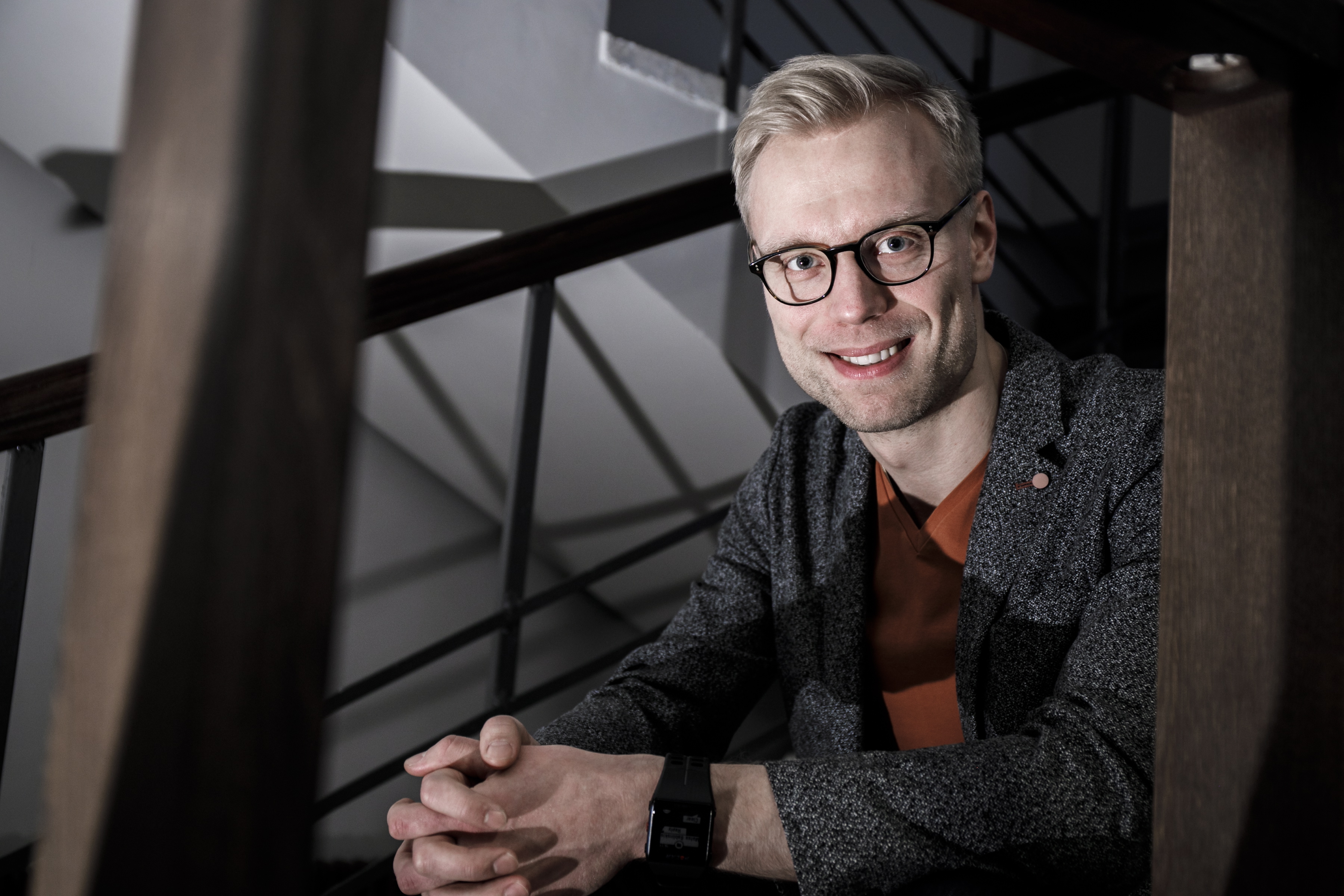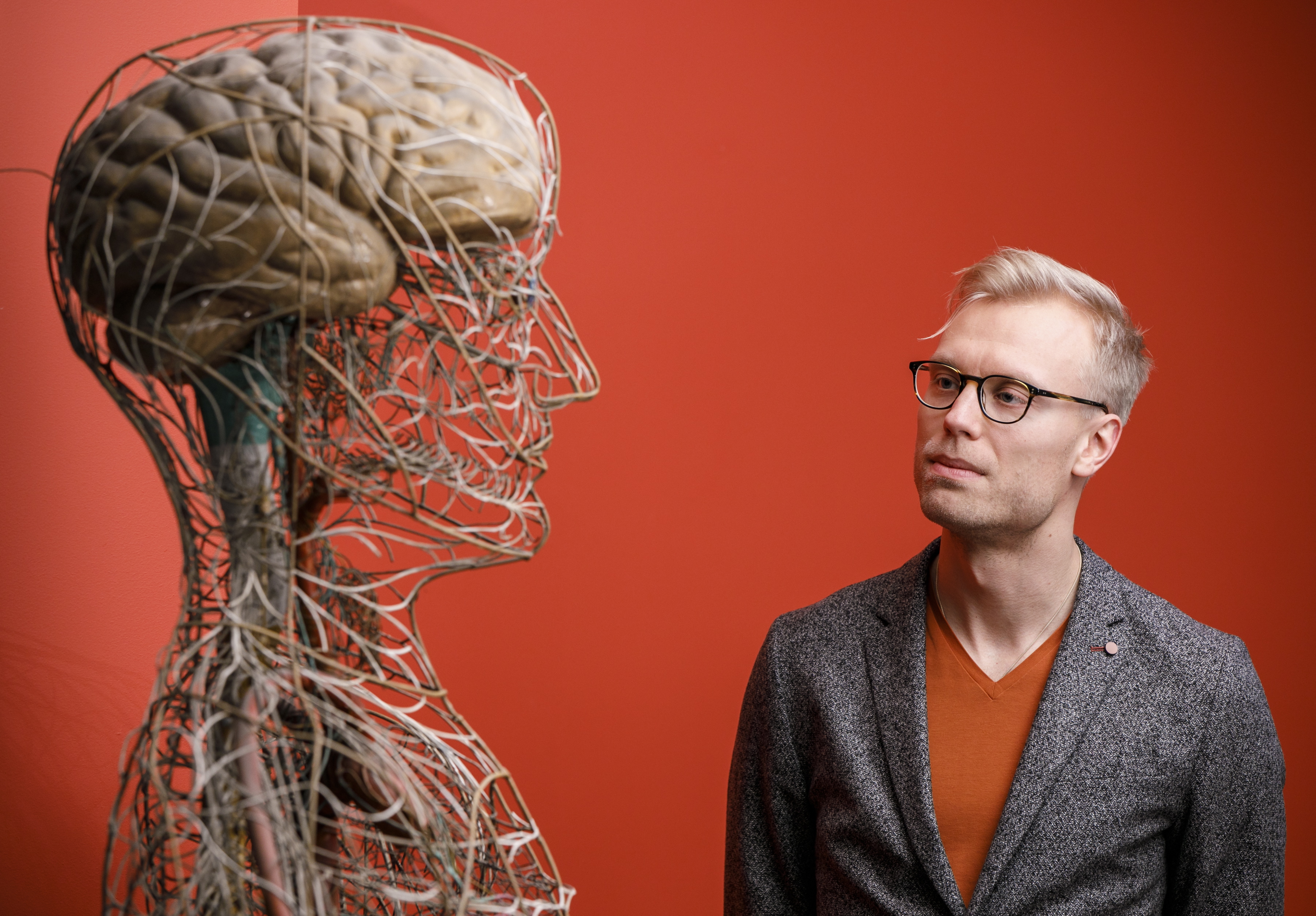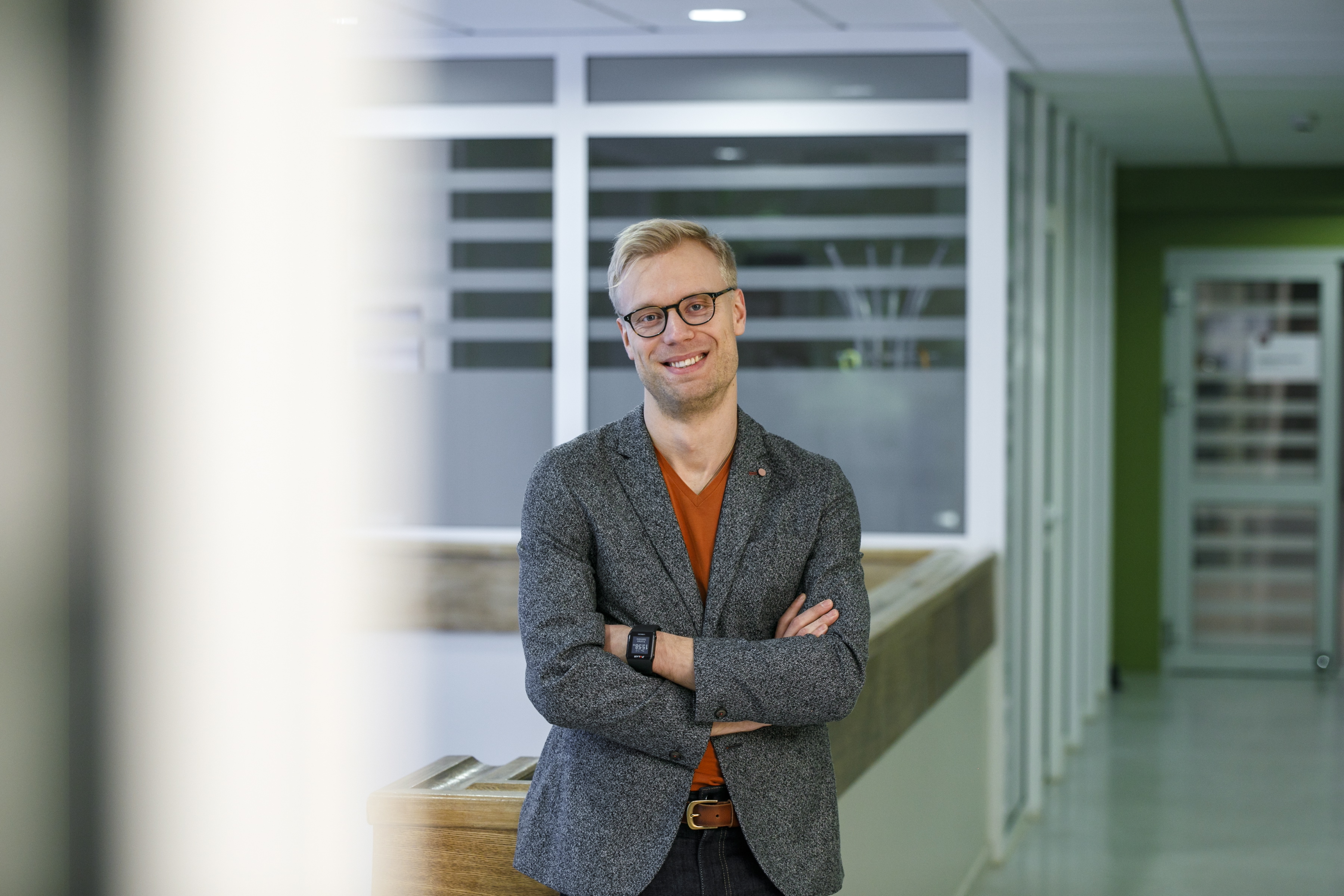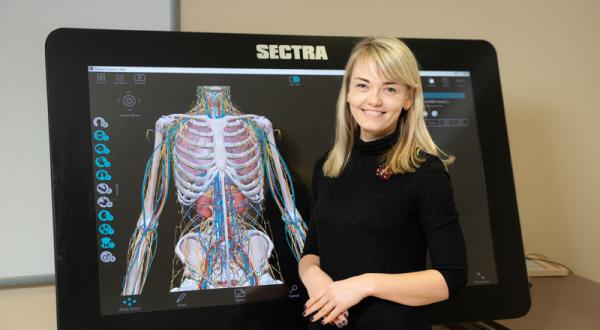Researcher Kristaps Šablinskis: the conference teaches us to present ourselves to the world
Future cardiologist Kristaps Šablinskis, a 2nd year residency and 1st year doctoral student at Rīga Stradiņš University (RSU), made his dream to become a physician come true after two years of studying physics. It was at this point that Kristaps realised what he really wanted in life.

‘I come from a non-medical family background. I and my brother, who is a 5th year medical student, could possibly lay the foundation for the new dynasty of physicians,’ Kristaps jokes. ‘Why did I choose this profession? I was searching for a job that is respectable, secure, poses challenges, and would allow me to gain knowledge and overcome obstacles. I strove for a meaningful job that gives satisfaction. To my mind medicine is rather logical career choice.’
What do I study and why am I involved in research?
As we started our clinical courses in the 3rd year RSU Assistant Professor Andris Skride actively encouraged each student to engage in research. I started by undertaking a few rather simple duties at the Latvian Pulmonary Hypertension Registry. Later on I continued with writing scientific abstracts and drafting publications. I am currently in the middle of my doctoral thesis in which I study one type of pulmonary hypertension – chronic thromboembolic pulmonary hypertension (CTEPH). The detection of CTEPH has become easier in the past years and the number of studies in this field is increasing in large part due to improvements in diagnostic tools and physicians’ awareness. This disease has become more detectable in Latvia due to conferences organised by the Latvian Rare Diseases Specialists' Association and the productive cooperation between Assistant Professor Skride, the Medical University of Vienna and world renowned expert in pulmonary hypertension Professor Irene Marthe Lang. This cooperation provided an opportunity to perform the first lung transplantation on a Latvian patient in Vienna. Advice from Prof. Lang also helped me decide on the topic for my doctoral thesis.
CTEPH affects the lungs and the heart. The disease may develop following one or several arterial thromboembolic events. A typical feature of CTEPH is high blood pressure in the arteries of the lungs. If left untreated the diseases can rapidly lead to right-sided heart failure, and even to death. Several types of pulmonary hypertension can be treated successfully, among them CTEPH.
In my doctoral thesis I study the impact of pathogenetic therapy on levels of inflammatory markers in patients with CTEPH. There is a pre-existing theory suggesting that high levels of inflammation play a significant role in the pathogenesis of CTEPH. This research is to a great extent associated with basic sciences. I will attempt to clarify whether the level of inflammatory markers change after six months of therapy. I will compare the data obtained from CTEPH patients with that of patients diagnosed with pulmonary arterial hypertension which is another type of pulmonary hypertension.
During the RSU Research Conference I will present a clinical case concerning a patient who underwent life-saving surgery at Pauls Stradiņš Clinical University Hospital at the end of last year – a pulmonary endarterectomy to remove blood clots from the pulmonary arteries cured the patient of CTEPH.

Why will I attend the conference?
It is essential not only to carry out research and to accurately interpret the results, but also to disseminate them to the public thus improving collective knowledge on a particular topic. Initially data should be collected then summarised, analysed and finally conclusions should be drawn and presented to the public in a clear and concise manner. To my mind, the last step – presenting the data on an international platform – poses a rather big problem in Latvia. We can only succeed by doing. Conferences like this offer an opportunity for us to train and learn to display the results of our studies on an international level. I think that young researchers are those that have the greatest potential of showing off Latvian science to the world.
The opportunity to meet new people and network is another essential aspect of the conference. The local scientific community is small and conferences like this provide an opportunity for us to acquaint ourselves with our foreign colleagues’ achievements and to get to know their fields of research. Often we can identify overlapping themes in our studies and because of this meet future cooperation partners. Nowadays research is teamwork and we can achieve something meaningful by working together.

Why should others attend the conference?
The RSU Research Conference provides an opportunity to learn new things, meet colleagues and get new experience drafting research papers and presenting them. The advice given by members of the conference jury is essential and useful too.
If we do our job well we improve the quality of the conference and thus make it even more visible internationally. Experience shows that the number of participants from abroad is increasing and that the conference is becoming more international. I therefore call on RSU researchers, students and especially doctoral students to participate in the conference. I see it as a matter of honour.
Related news
 Virtual reality and simulations – not only for education, but also for researchResearchers up close
Virtual reality and simulations – not only for education, but also for researchResearchers up close